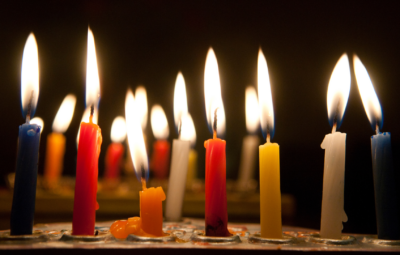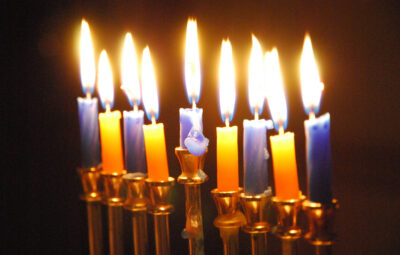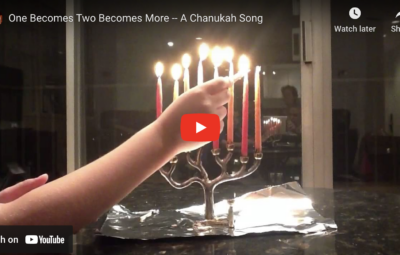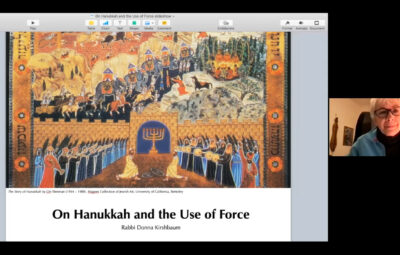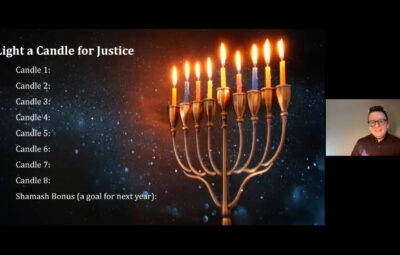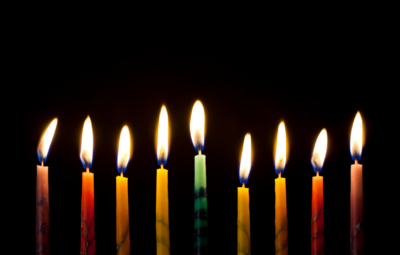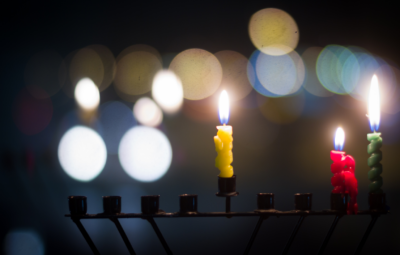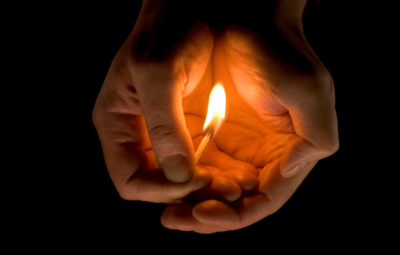With so much darkness in the world, Jews and and our allies need the light of Hanukkah more than ever. Reconstructing Judaism is honored to bring you resources that are a pathway to bringing more light in your celebration and to the world.
Looking for a refresher on how to light candles? A recipe for Iraqi latkes? Or an exploration of lesser-known stories and what they teach us about courage?
Reconstructing Judaism invites you to explore and deepen your own experience of “The Festival of Lights.”
‘Write Your Light’ is an innovative writing journal for every day of the Hanukkah celebration, with special prayers and poems from Ritualwell contributors and creative prompts for personal reflections.
Join the Ritualwell community on December 18 for our ‘Write Your Light’ event. Your registration for this event includes your journal.


